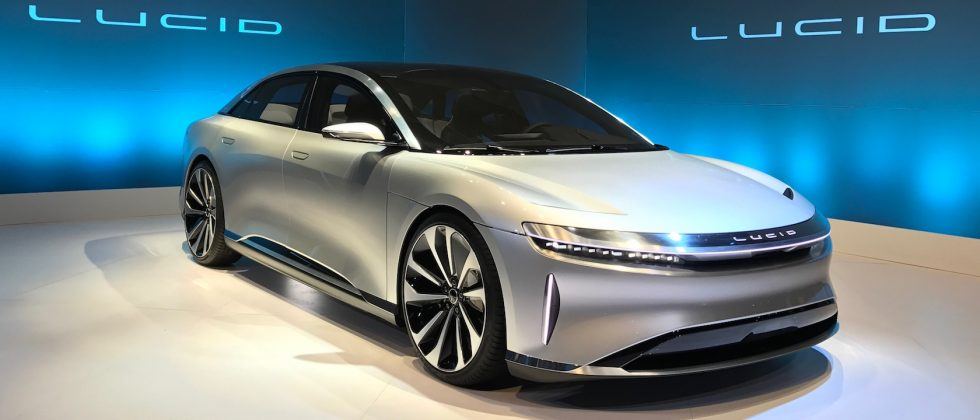Saudi invests $1bn in Lucid Motors
September 19, 2018 | Expert Insights

The Saudi wealth fund has invested $1Bn in Tesla rival Lucid motors.
Saudi Arabia, the world’s largest oil exporter, is investing in new industries to diversify the kingdom’s economy away from its vast hydrocarbon resources.
Background
Tesla is an American automaker founded in 2003 by Elon Musk. It specializes in electric cars, lithium-ion battery energy storage and more. It is predominantly known for manufacturing luxury electric cars. In 2008, it released the world’s first electric sports car called the Tesla Roadster. One of its models, Model S has been the world's best-selling plug-in electric car in 2015 and 2016.
In countries like the US, the sale of electric cars has significantly increased. In 2016, the sale of electric vehicles in the US rose by 37%. California, in particular, was the biggest market for electric cars. Globally, the sales of electric vehicles have more than doubled since 2014. This was due to concerns over growing oil prices and the environment.
Lucid Motors, Inc. (formerly known as Atieva) is an American automotive company specializing in electric cars. The company was founded in 2007, and it is based in Newark, California. Lucid Motors is attempting to challenge Tesla’s dominance in the Global electric car segment. Saudi Arabia’s investment will be a crucial boost for the company which has been lagging behind Elon Musk’s company.
Analysis
Saudi Arabia’s sovereign wealth fund has made its second major investment in a US electric vehicles maker, striking a $1bn deal to provide much-needed financing for Tesla-rival Lucid Motors on Monday.
The move comes just weeks after the Financial Times revealed the Saudi Public Investment Fund, the state vehicle being used by Crown Prince Mohammed bin Salman to overhaul his nation’s economy, had built a near 5 per cent stake in Elon Musk’s car group Tesla.
The Public Investment Fund (PIF) said the deal would provide funding to help Lucid launch its first electric vehicle in 2020, ending months of speculation over whether the private Silicon Valley-based company would be able to secure the backing needed to allow further development of its products.
Lucid is one of a handful of electric car start-ups trying to model themselves on Tesla, though they are years behind and, in several cases, struggling to raise cash.
The company, which was founded in 2007 as Atieva, says its mission is to “inspire the adoption of sustainable energy by creating the most captivating electric vehicles, centred around the human experience”.
Lucid’s chief technology officer, Peter Rawlinson, was previously the chief engineer for Tesla’s Model S. Copying the game plan of the Model S, Lucid’s first car, called the Air, is a high-end sedan designed to reach production capacity of about 50,000 a year, acting as a showcase for the company’s brand and technology as it tries to open a wider market.
The PIF funding will be used to complete the engineering development and testing of the Air, as well as construct a factory in Arizona to help with its production.
While Saudi Arabia is investing in a sector that is primed to erode oil’s dominance in transportation, the kingdom still sees growth in vehicles powered by traditional fuels led by fast-growing emerging economies in Asia and Africa.
Counterpoint
However, unlike its move to purchase a stake in Tesla, the decision to invest in Lucid was the source of major debate within the PIF.
That was partly because of the troubled financial position of Lucid, one of these people said. The company has yet to build its planned factory in Arizona, a facility it predicted would cost $700m and produce 10,000 vehicles in 2019. The company’s backers include Jia Yueting, the entrepreneur behind ambitious Chinese electronics conglomerate LeEco until the group ran into financial difficulties.
Tesla is ahead of Lucid motors in both capital and production capacities. Lucid motors will find it difficult to compete with Tesla unless it dramatically ramps up production, sets up a complex distribution and services network.
Assessment
Our assessment is that this is one way Saudi Arabia is looking to diverse its oil-dependent economy. Although electric cars are starting to erode the dominance of oil-based vehicles, it shows Saudi’s desire to move away from a hydrocarbon-based economy. We believe that this investment will prove critical for Lucid motors, both in production terms as well as in public confidence. However, we also feel that its main rival Tesla, is already too large for Lucid to challenge without more capital infusion and manufacturing facilities.








Comments